Overall, it was a very good month of reading for me. Books, as usual, were the lifeboats I ran for when things got tough outside.
Like everyone else, I suspect, I spent most of March obsessively reading minute-by-minute news updates on COVID-19. But being under curfew here in Belgrade left me with lots of time for other reading too.
From Brazilian short stories of lesbian love to time-worn Slavic folk tales, via a dystopian vision of Britain after a military coup, here’s a summary of the books I read in March.
The Essential Jung: Selected Writings, edited by Anthony Storr
I’ve always admired Jung’s writing and wide-ranging psychological theories, but it’s been a while since I wrote about him on the blog—well, 12 years, actually! So I enjoyed this collection, which consists of short extracts from lots of different works, grouped by subject matter, and with useful introductions by Anthony Storr. It’s a great way to get an overall sense of the major currents of Jung’s thought.
Amora by Natalia Borges Polesso
This was a beautiful collection of short stories about love between women, in a wide variety of forms. It won lots of literary awards in Brazil a few years ago, and the English translation is due for publication next month. Read my review of Amora here.
Amritsar 1919: An Empire of Fear and the Making of a Massacre by Kim A. Wagner
I’d heard about the Amritsar massacre in general terms as one of the most shameful moments of the British Empire, but never knew the details before. This book lays out a very detailed background, using a variety of primary sources to show what led to the massacre and then to examine its aftermath. British history tends to describe the massacre as a shameful aberration by a single officer, but this book puts it in its proper context as part of a wider project of colonial violence.
The Social Life of DNA by Alondra Nelson
Alondra Nelson, a sociologist at the Institute for Advanced Study, looks at the various ways in which African-Americans have used DNA to trace their connections back to Africa, and how that affects identity and race relations in America. It was a fascinating story that gave me a greater understanding of the possibilities—and limitations—of DNA analysis.
Capitalism, Socialism, Ecology by André Gorz
André Gorz was a prominent French intellectual of the late twentieth century, and the only book I’d read by him before was Letter to D, his moving message to his terminally ill wife. So I wanted to read this book about his thought. In many ways, he was ahead of his time—although he was writing in the early 1990s, the book felt very contemporary with its discussions of how to deal fairly with a reduced demand for labour, how to build an ecologically sustainable society, the case for a universal basic income, etc. The disappointment was that this was a collection of essays written at different times, so it didn’t feel like a very coherent whole.
Ask Again, Yes by Mary Beth Keane
Back in the days when we could still travel (was it really only a few weeks ago?), Genie and I listened to this in the car, and it was the perfect companion. It tells the intertwined stories of two Irish-American families across two generations, dealing with mental illness and alcoholism and a horrific incident one night that threatens to overshadow the lives of both families. If it sounds depressing, it’s not at all—as the title suggests, it’s actually quite an uplifting look at the ways we survive and deal with life’s difficulties and still find the ability to say “yes.”
Myths and Folk-Tales of the Russians, Western Slavs, and Magyars by Jeremiah Curtin
One of the few good things about Amazon is that it makes lots of very obscure old books available to read either free or very cheaply as ebooks. The quality is very variable, though. This one was OK, but the stories were quite limited and repetitive, often just slightly different versions of the same basic tale. Even with my limited knowledge of folk tales, I know of plenty of Russian stories that were not included, so I found the selection quite strange, and although there were some interesting stories in here, I wouldn’t recommend it overall.
In the Name of Truth by Viveca Sten
While the rest of the world has been reading Scandinavian crime fiction for years, this was my first foray. It’s the story of a boy who goes missing from a sailing camp, and also of a financial fraud trial that may or may not be connected to his disappearance. It’s all quite cleverly woven together and kept me turning the pages. Watch out for my review in the next few days as part of the virtual Quai du Polar festival being run by Emma and Marina Sofia. If you like crime fiction, there’s still time to join in—check their sites for more details.
The Disappeared by Amy Lord
The scary thing about The Disappeared is how plausible it sounds for the army to take control in Britain after a false flag terrorist attack and establish a brutal regime of lawless violence in the name of security. The novel follows a young woman who gets drawn into a rebel conspiracy. Think Nineteen Eighty-Four for the 21st century, although not quite so bleak as Orwell’s dystopia.
The Verdict
I always hate to pick just one book each month—which begs the question of why I do it. Not sure… Anyway, in keeping with tradition, I’ll pick Amritsar 1919, despite the strong claims of so many of the other books.
Overall, it was a very good month of reading for me. Books, as usual, were the lifeboats I ran for when things got tough outside. I hope you all stay safe this month, find some good lifeboats of your own, and let’s not forget to sing as we wait for land to appear on the horizon.
Wherever you are, please say “hi”, let me know your favourite reads of the month or your thoughts about anything else, and visit someone else’s blog to make a new connection. We’re only as isolated as we allow ourselves to be.
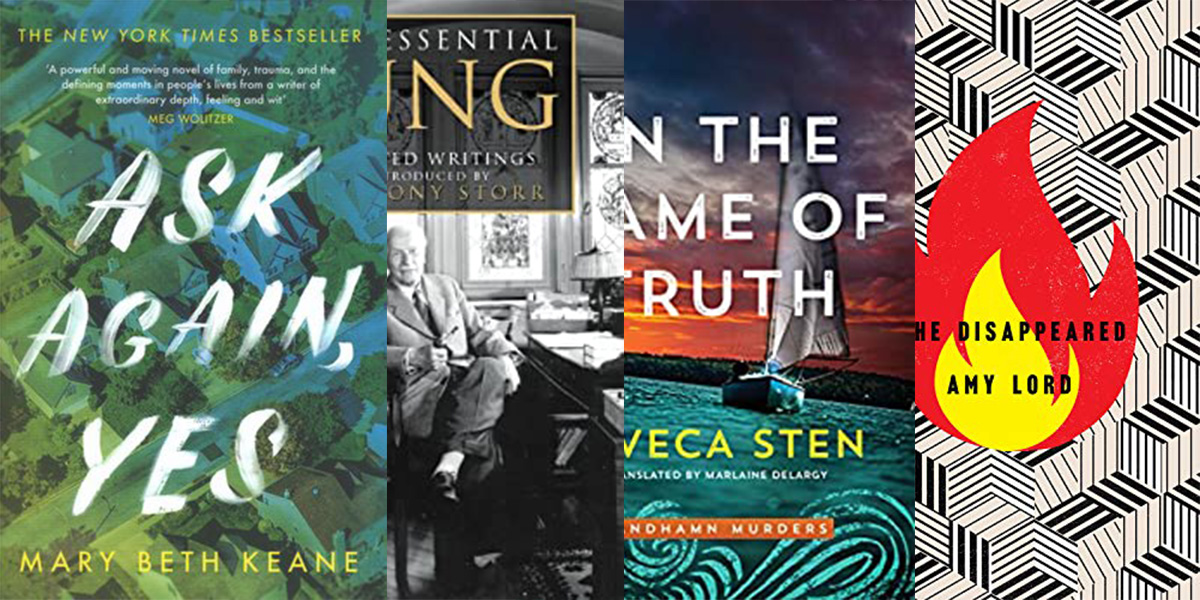
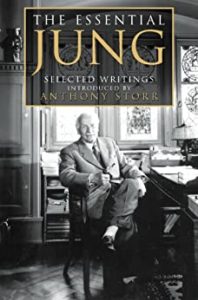
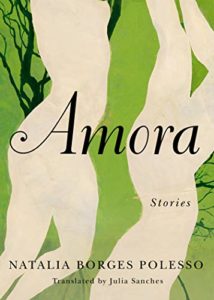
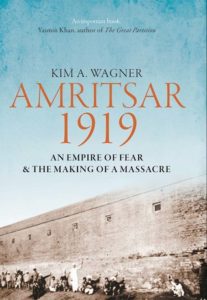
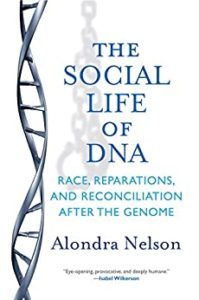
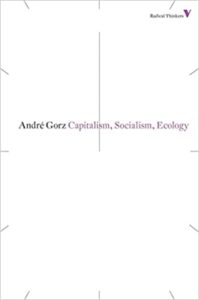
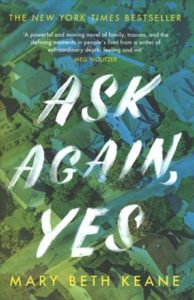
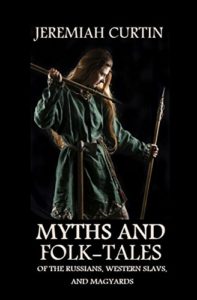
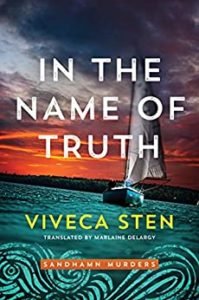
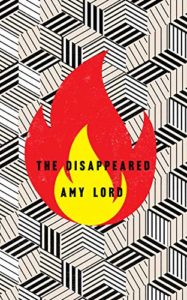



There are 10 comments
Hello,
Thanks for mentioning my blog and our Quais du Polar event.
I have a Viveca Sten’s Still Waters. It’ll be my first one, I’m looking forward to your review.
This month I’ve read Black Dog of Fate by Peter Balakian. I recommend it.
De rien! I enjoyed the opportunity to read something different from usual. Ah, Black Dog of Fate sounds perfect for me. I learnt a bit about the Armenian Genocide while we were travelling in both Turkey and Armenia last year. It’ll be interesting to read about it from this perspective, with the Armenian-American experience included. We started listening to a detailed history called The Thirty-Year Genocide while we were driving through Turkey, but it became too overwhelming at the time, and we put it aside. We’ll probably go back to it this year some time, now that we have some distance, and Black Dog of Fate will be a good complement. Thanks for the recommendation!
As usual, a curious and impressive lineup in your monthly reading. You always make me want to read the books that you’re reading, even when I’ve never heard of them before.
And I’ve not heard of the Amritsar Massacre but I can see where the “lone wayward soul” would have made for a convenient cover-story (not the first time that’s happened) and how vital this kind of history would be as an antidote.
Yes, why DO you choose a favourite? *laughs* I hate choosing in those kinds of instances too. Mind you, some months a single book really does stand out, so I can understand the impulse, even so.
Books are my lifeboats too – even in the first week, when nothing else seemed do-able, I put some page numbers on my calendar and kept to some reading each day, more the next week and so on.
Do you know Daphne Du Maurier’s dystopian novel, Rule Britannia? I wonder if it would make an interesting companion to The Disappeared (although across decades, and I’m not sure it was received well from a critical perspective, upon publication). We were told on Monday to expect “an increased military presence” on the streets of Toronto, which certainly does get one thinking about government intervention in a different way, especially when we’re unaccustomed to such sights (though commonplace in other places, of course). But people here are not used to being ordered to do things (even if it’s just stay home, which for some might not be a safe place, but others are just frustrated with their Netflix selections).
Ha, “curious and impressive”—I’ll take that! My reading does tend to be all over the map, which I guess is where the “curious” part comes in. I’ve often wanted to be more organised and to read in depth in particular areas, as you’ve been doing with the works of Mavis Gallant, but somehow it never seems to stick.
I’m glad I make you want to read the books I’m reading, because you do the same—even a single comment of yours always adds to my TBR pile 🙂 I’d never heard of Rule Britannia, but I’d love to give it a try now. The premise sounds a lot likelier in this post-Brexit world than it would have in years past.
I also think it’s very important to be vigilant about the militarisation and tightening of state power in the name of security. These things have a way of arriving in times of emergency and then never going away again. I lived through the erosion of civil liberties in the USA in the wake of September 11, and it’s so important to make sure all the emergency powers our governments are granting themselves don’t become permanent.
I think “obsessively reading minute-by-minute news updates on COVID-19” pretty much described all of us in March. Glad you still found time to read!
Glad I wasn’t the only one, Nicole! I suppose it’s a natural reaction—when your survival feels threatened, you search out information to help you survive. But I’ve reached the point of diminishing returns now. Books have been a great solace. Hope you stay safe and well, and thanks for checking in 🙂
Wow, you read all that in March? Super impressive since I was so distracted by the pandemic and and everything going on at work to move the university to online classes and my job to work at home, that my reading tanked. Some good stuff on your list that I will have to look into further. I hope you are keeping well!
Hi Stefanie, Good to hear from you! Yes, we’re fine here, thanks—hope you and your loved ones are doing well too. Yes, I think I was lucky in that I’ve been working from home for years now, so there was no transition for me to make. Must have been hard for you to make the switch. I was definitely distracted by the pandemic, but reading helped me to calm down and find a different focus, so I really used books to help me through the month. Here’s hoping for good books and flattening curves in April!
With the exception of Ask Again, Yes, all of the books your read are new to me. My favorite book of March was a tie between two Brigid Kemmerer books–Letters to the Lost and More Than We Can Tell.
Hi Danielle, Thanks for stopping by! Hope you are safe and well. I loved Ask Again, Yes! Thanks for the Kemmerer recommendations 🙂